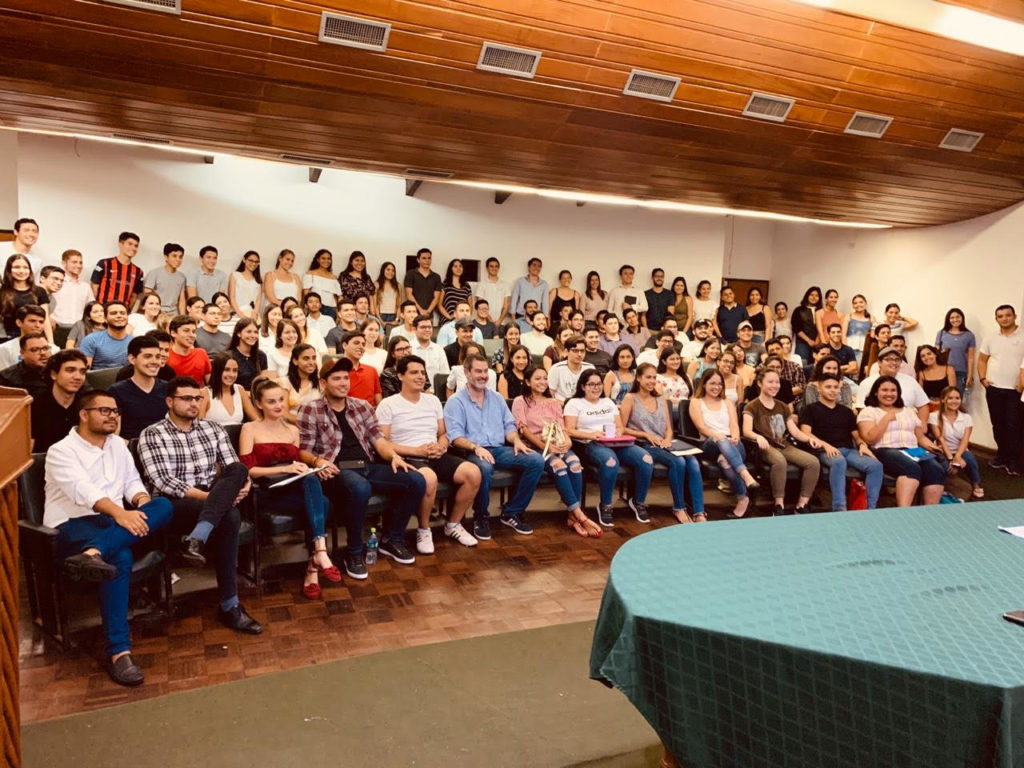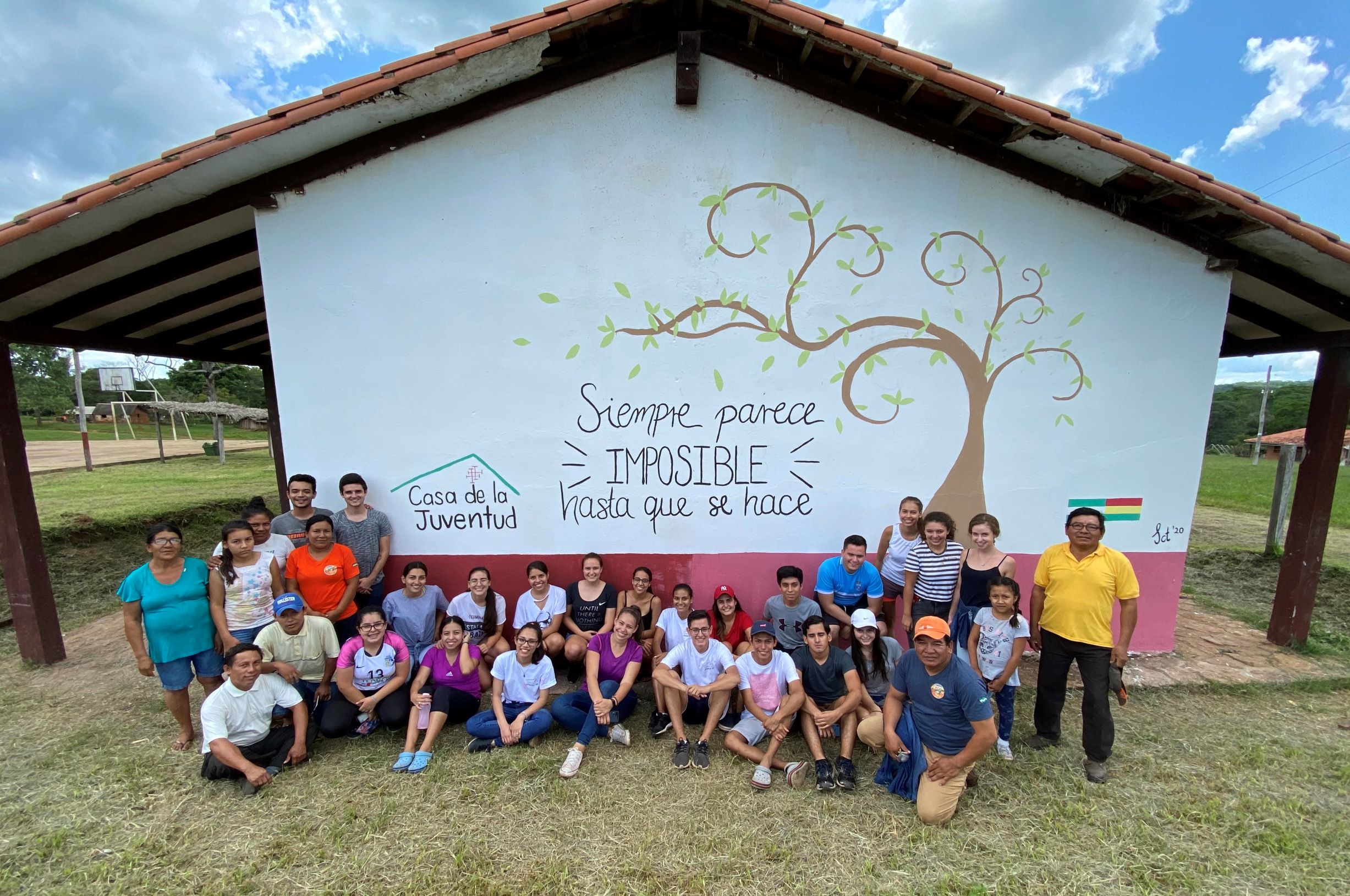Find our other interviews with liberal and democratic youth organisations here.
Can you tell me a little about how Casa de la Juventud operates? How is it structured? What kind of people are active in it? And what kind of projects does it work on?
“Casa de la Juventud” is an institution created by young people and for young people, with the aim of promoting the formation of leaders who show solidarity and are committed to our society. This institution is not for profit and is maintained thanks to the voluntary contribution of its members and various sponsorships. Our target audience is young people from 15 to 25 years old.
The structure of the institution is made up of 3 important groups, the directory for organizational means and the members who are the people that attend the events that we carry out – this group is divided into two active and passive members, the first being those who contribute financially to the institution and have certain benefits for that reason, in addition to being part of commissions where they work on projects according to their interests. The last group, but not the least, are the alumni, who are the people who have already passed through the institution and who contribute financially to it. We always seek to invite them to give presentations due to the great leadership they have in their different professional areas.
What role do you play in Bolivia’s domestic politics?
Due to the high quality of comprehensive training, the leaders that shape the institution after going through it, exercise leadership from an early age, which in the medium and long term allows them to influence internal politics from the professional field they exercise. This is how we have leaders in the public and private spheres who seek to build a better society every day. We are the only institution that has formed several deputies and the maximum achievement would be that one of them became vice minister of autonomy, who was also founder of the institution, Lic. Gustavo Serrano. So it is people who come to influence spaces of power in the long term with the ideas and values that we promote.
What are the fundamental values of Casa de la Juventud, and how do you work to promote these?
Our current mission is: “We are a youth organization that promotes activities for the integral formation of leaders at the service of society.”
From it, our values are born, which are the following:
– Commitment
– Excellence
– Solidarity
– Civic Activism
– Unity
– Integrity
We promote all these values through five institutional pillars: leadership, citizenship, social action, sports and culture. We seek the application of these through events, meetings, projects, etc., where you can explore and learn from these.

What does your international work look like? What partners do you work with?
Currently, we do not have a direct relationship with an international partner that supports us financially, for example, but we are always looking for one. Despite this, we interact with many international organizations or foundations, where our members are fellows and take training courses. We actively participate in different ones where we seek representation of youth from Bolivia, above all.
What do you think Casa de la Juventud is good at? Why do you think so?
Casa de la Juventud has as its source the essence in the training we provide, because we do not limit ourselves to a certain way of teaching young people the values we promote. Rather we seek that youth, according to each individual initiative, can exploit their skills in the project that the individual person wants, from y learning technical tools of project management for example, ability to adapt, conflict resolution, among an endless number of skills, that together with teaching how to be a good citizen, safeguarding the interests of the city through civility, respect for the rule of law, democracy, etc. These allow a young person having a global vision, with critical thinking, a young person who understands the reality of their country and who has to change it. A young person who must know its history, its customs and traditions to truly love their place of residence. From all that, that young person will go out into the world more human and more prepared.
How do you think Casa de la Juventud could improve?
The institution grows more and more every day, we seek to be national benchmarks in training young integrity. In this sense, and considering the current situation, we must improve in being able to reach more younger people than we do today. Learning more tools and being able to implement them within the institution to be even more professional than we are; the fight of ideas is a complex field but it is our duty to learn new methodologies to reach many more young people still, to be able to attract their attention and thus have them as members.
What was your motivation to become involved in politics, and with Casa de la Juventud specifically?
My motivation to enter the youth house was the interest to train myself better for tomorrow, the desire to be a better professional, and for this to over time allow me to gain influence politically through my opinion and to make myself heard on a political level.
What are projects you are working on for the next year?
We are currently working on large projects of civic and political training, seeking to establish relationships with international organizations that can provide us with support to carry them out. Due to the excellent results that we have had as an institution thus far, we are sure that we will be able to hold major events promoting these ideas, which are so important for individual development. From that starting point, everyone is free to carry out the initiatives they want, but with the tools, knowledge and networking to do so.

